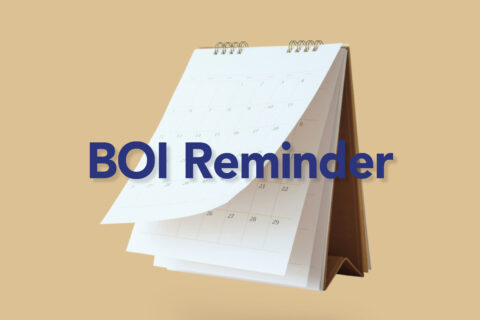The IRS announced last week that criminals had attempted to access about 200,000 accounts in its Get Transcript online application and successfully obtained information from about 100,000 of those accounts. About 23 million taxpayers used the online Get Transcript application this past filing season. What information was available through this IRS application depends on what was requested. The information can include as much as every line item on a tax return, as well as other tax and personal information.
The scammers were able to access the accounts by obtaining sensitive personal information from sources outside the IRS. Some of this information was tax return-related and other information was not tax return-related, but is information considered to be known only by the taxpayer and used to verify the personal identity of the applicant/taxpayer (called “out of wallet” questions by financial institutions that use similar verification processes).
The IRS is taking several steps to deal with this systems breach. It temporarily has shut down its Get Transcript online application and the application will remain disabled for an undetermined length of time. The IRS is sending a letter to all of the approximately 200,000 taxpayers whose account had attempted unauthorized accesses, since the hackers had some amount of personal information about those taxpayers in order to make the attempts, even if they were not successful in accessing the accounts. The IRS is offering free credit monitoring for the approximately 100,000 taxpayers whose Get Transcript accounts were accessed. It will be contacting the subject taxpayers by mail with instructions on how to sign up for the credit monitoring. The IRS says that all the letters will be mailed this week. The IRS will also be marking the affected taxpayers’ accounts in its core tax account system in order to protect against identity theft and the filing of false tax returns by the criminals.
The IRS emphasizes that the incident affects only one application involving transcripts, does not involve other IRS systems and affects only a small percentage of income tax return filers. It further suggests that taxpayers do not call the IRS to find out if they are going to receive a letter, since such calls could overwhelm the IRS response capabilities.
Latest Blog
Updated February 14, 2025 A complex trust or estate may make an election under Internal Revenue Code Section ...
As this reminder was going to press, a Texas-based federal court issued a preliminary injunction prohibiting the federal ...
The landscape of gift and estate tax planning is experiencing significant shifts, with the upcoming 2026 sunset looming ...
HM&M Updates
DALLAS, Dec. 11, 2024 – Springline Advisory, a trailblazing financial and business advisory firm, is proud to announce its partnership ...
Last month, Senior Manager, Pearl Balsara was invited to speak at the 2023 FPA DFW Annual Conference in ...
We are pleased to announce the winners of the 2022 HM&M Excellence Awards. Ronna Beemer, Keith Phillips, and ...









